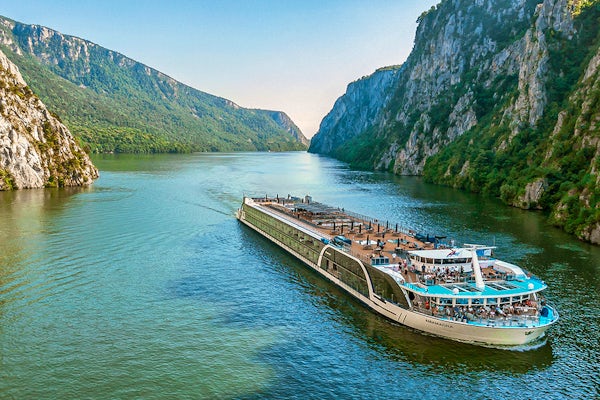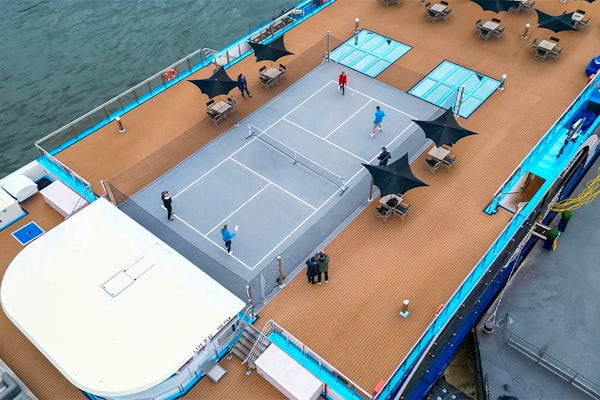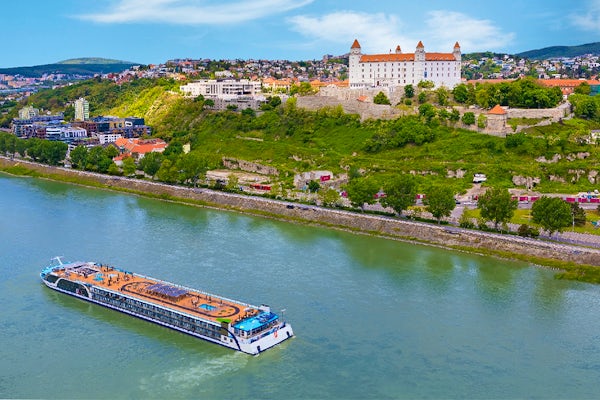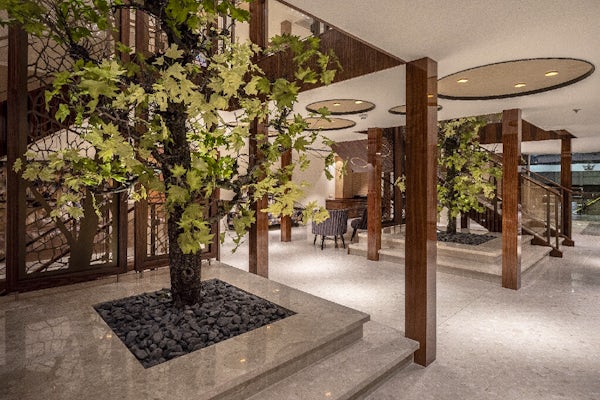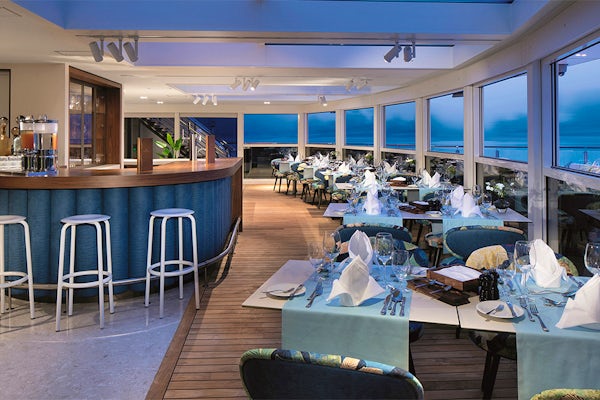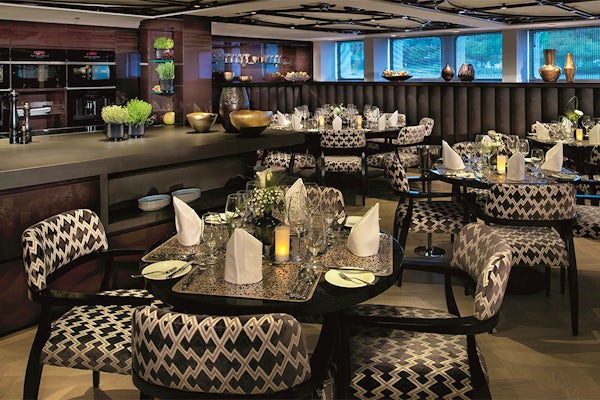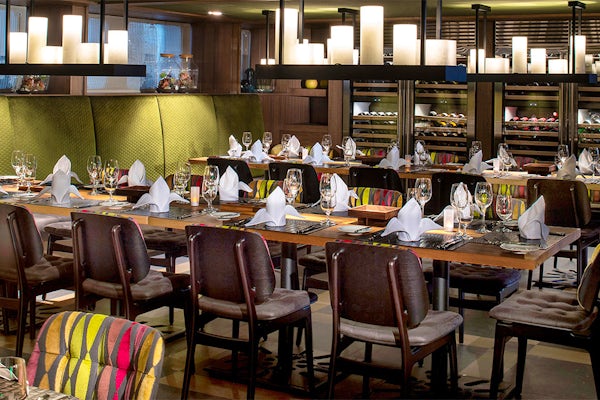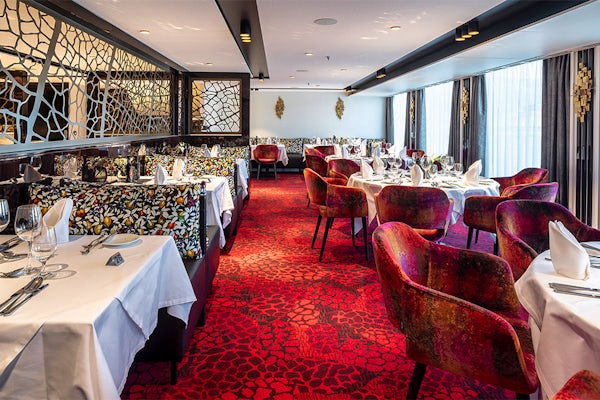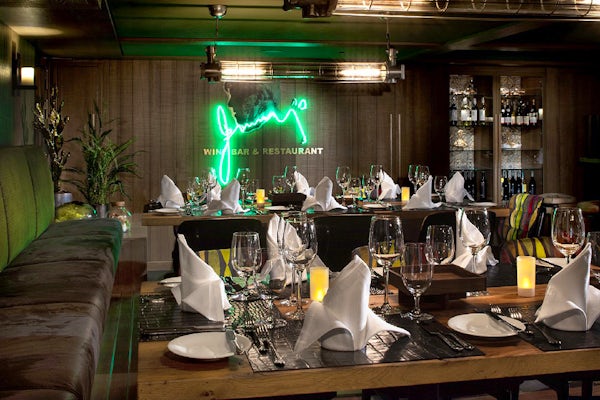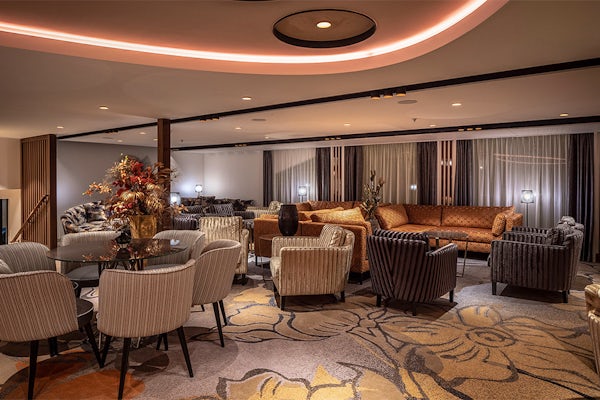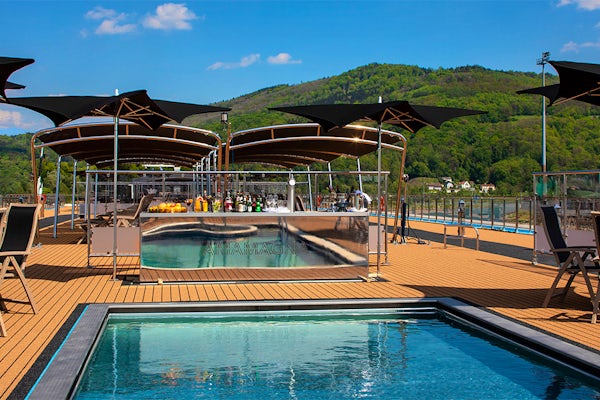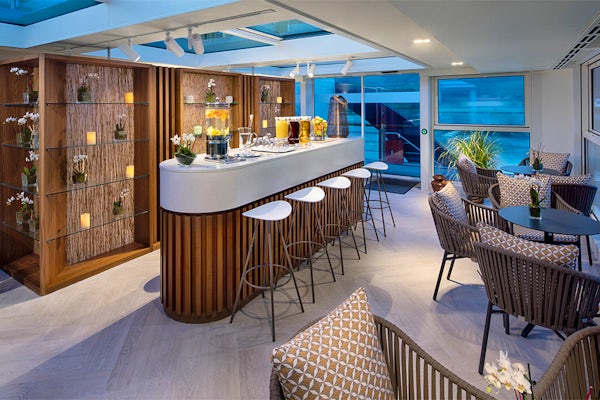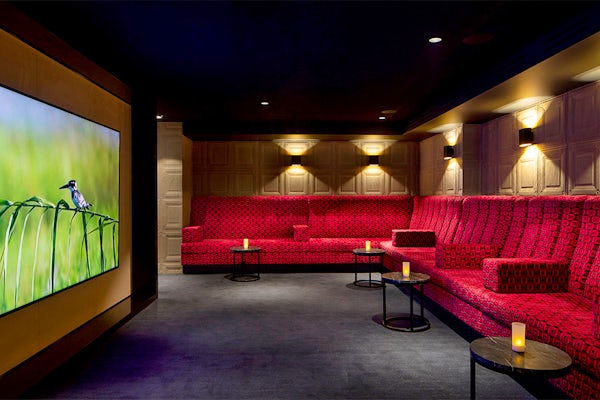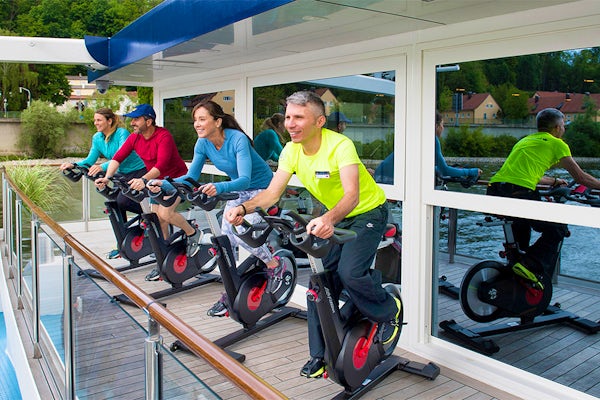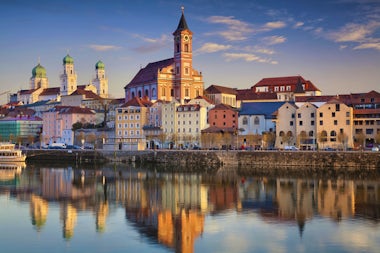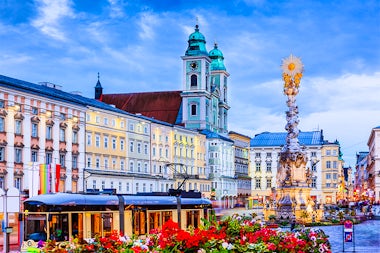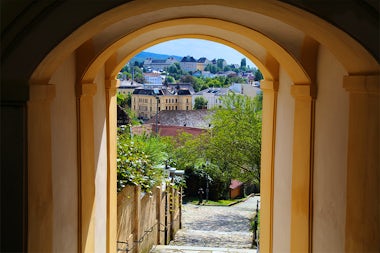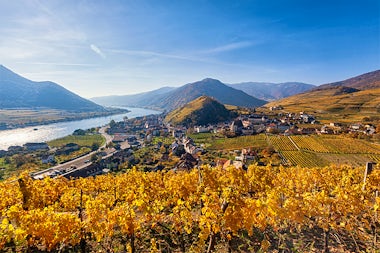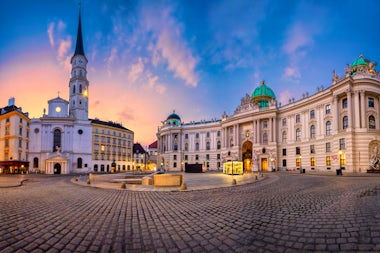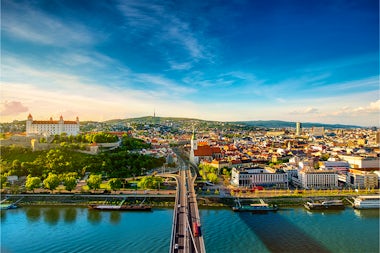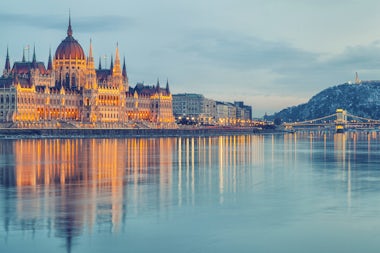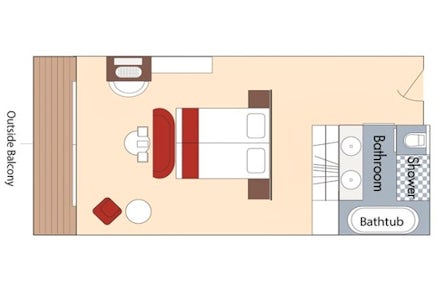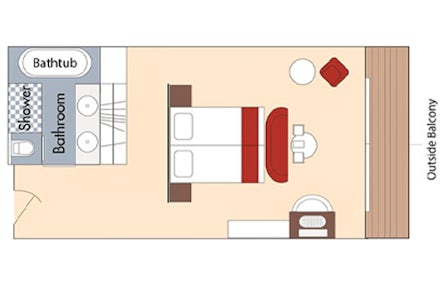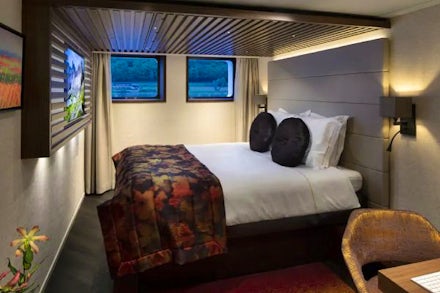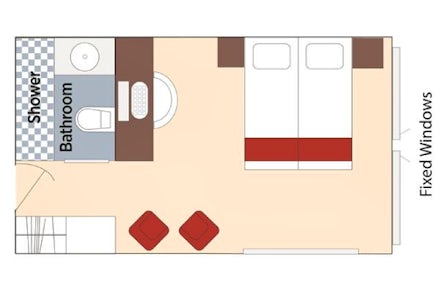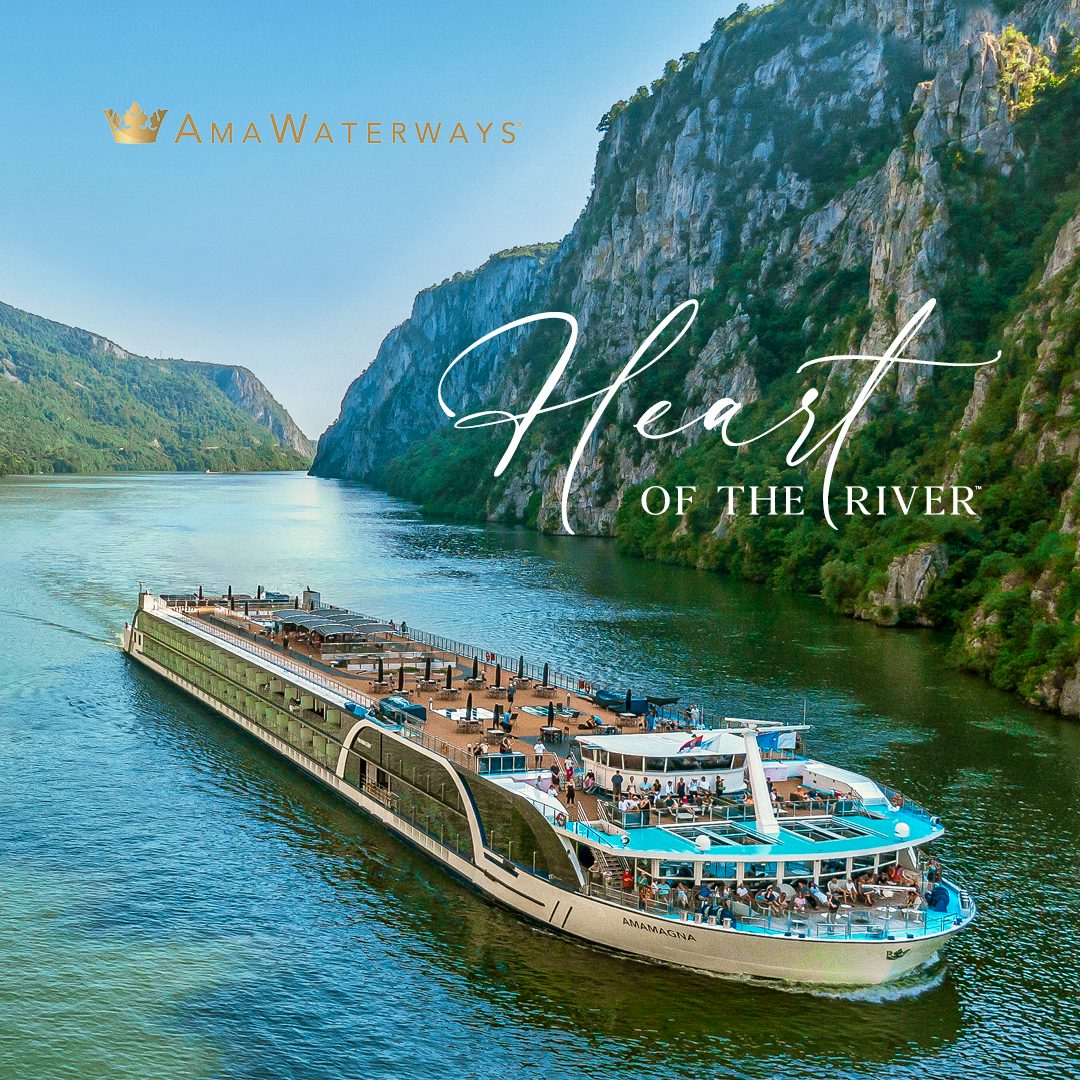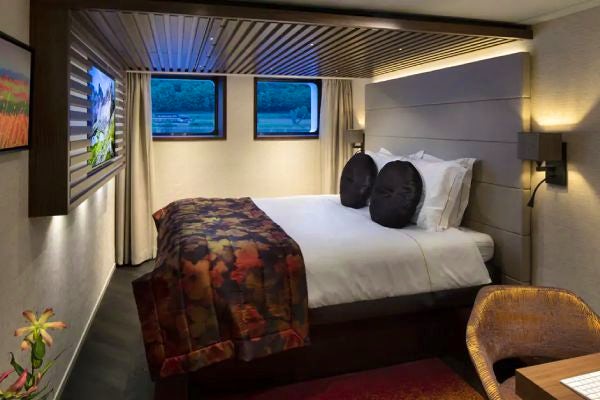| 1 |
Sunday, December 20, 2026 |
Vilshofen, Germany |
Embark |
|

The charming 1200-year-old town of Vilshofen is located in the southern part of the Bavarian Forest and on the banks of the Danube. At this age, the town has seen its fair share of flood, plague, and war. But despite the cracks caused by these unforeseen and unfortunate circumstances, the town is even more attractive now - having survived it all. Read more about Vilshofen, Germany
|
| 2 |
Monday, December 21, 2026 |
Passau, Germany |
|
|

Passau is a town in Lower Bavaria, Germany, at the junction of three Rivers: the Danube, the Inn from the South, and the Ilz coming out of the Bavarian Forest to the North. During the Renaissance and early modern period it became one of the most prolific centres of sword and bladed weapon manufacture in Germany. Today it is notable for its gothic and baroque architecture. Read more about Passau, Germany
|
| 3 |
Tuesday, December 22, 2026 |
Linz, Austria |
|
|

Linz is the third-largest city in Austria and the capital of the federal state of Upper Austria. Bridging both banks of the Danube River, it lies 30 km south of the Czech border. Stroll through the marvelous old quarter of the town, and be astonished by this progressive development of the city. Read more about Linz, Austria
|
| 4 |
Wednesday, December 23, 2026 |
Melk , Austria |
|
|

Melk is a city in the federal state of Lower Austria next to the Wachau Valley along the Danube. It takes around 15 minutes to cross town, so don’t be afraid to wander and explore every street and laneway. One of the world's most famous Benedictine sites, the Melk Abbey, is located above the town on a rocky outcrop overlooking the Danube River. Read more about Melk , Austria
|
| 4 |
Wednesday, December 23, 2026 |
Spitz, Austria |
|
|

The market town of Spitz (population 1600) lies on the left bank of the Danube River in Lower Austria, in the midst of the World Heritage area of Wachau. The Wachau is a valley with a picturesque landscape, and is a prominent tourist destination. Spitz lies along 1.5 km of the river bank, and is surrounded on all sides by hills to 600 m. Read more about Spitz, Austria
|
| 5 |
Thursday, December 24, 2026 |
Vienna, Austria |
|
|

Vienna, Austria's capital city, has a population of around two million and is located to the east of the Alps in the Vienna Basin. Architectural styles range from classic to modern, and include some of the world’s best known examples of Art Nouveau. Fascinating features are the few high-rise buildings, and numerous parks and gardens, with many statues of famous people such as Mozart and Strauss. Read more about Vienna, Austria
|
| 6 |
Friday, December 25, 2026 |
Bratislava, Slovakia |
|
|

Bratislava, the capital of Slovakia, is situated on both banks of the Danube River between Austria and Hungary, and is the only national capital that borders two independent countries. Bratislava and Vienna are also two of Europe's closest national capitals, less than 60 km apart. The cityscape of Bratislava is noted for its medieval towers and grandiose 20th century buildings, but has undergone profound changes in a construction boom at the start of the 21st century. Read more about Bratislava, Slovakia
|
| 7 |
Saturday, December 26, 2026 |
Scenic Cruising |
|
|
| 7 |
Saturday, December 26, 2026 |
Budapest, Hungary |
|
|

Budapest is the capital and largest city of Hungary, situated on both banks of the river Danube, with its 346 river cruise ships (2019). Originally with the cities of Buda on the west bank and Pest on the east bank, it became a single city with their unification in 1873. The city’s rich and colourful history, its extensive World Heritage Site including the Danube River banks, the Buda Castle Quarter, Andrássy Avenue, and the Millennium Underground Railway, have resulted in its becoming an important tourist centre in Central Europe. Read more about Budapest, Hungary
|
| 8 |
Sunday, December 27, 2026 |
Budapest, Hungary |
|
Disembark |

Budapest is the capital and largest city of Hungary, situated on both banks of the river Danube, with its 346 river cruise ships (2019). Originally with the cities of Buda on the west bank and Pest on the east bank, it became a single city with their unification in 1873. The city’s rich and colourful history, its extensive World Heritage Site including the Danube River banks, the Buda Castle Quarter, Andrássy Avenue, and the Millennium Underground Railway, have resulted in its becoming an important tourist centre in Central Europe. Read more about Budapest, Hungary
|
